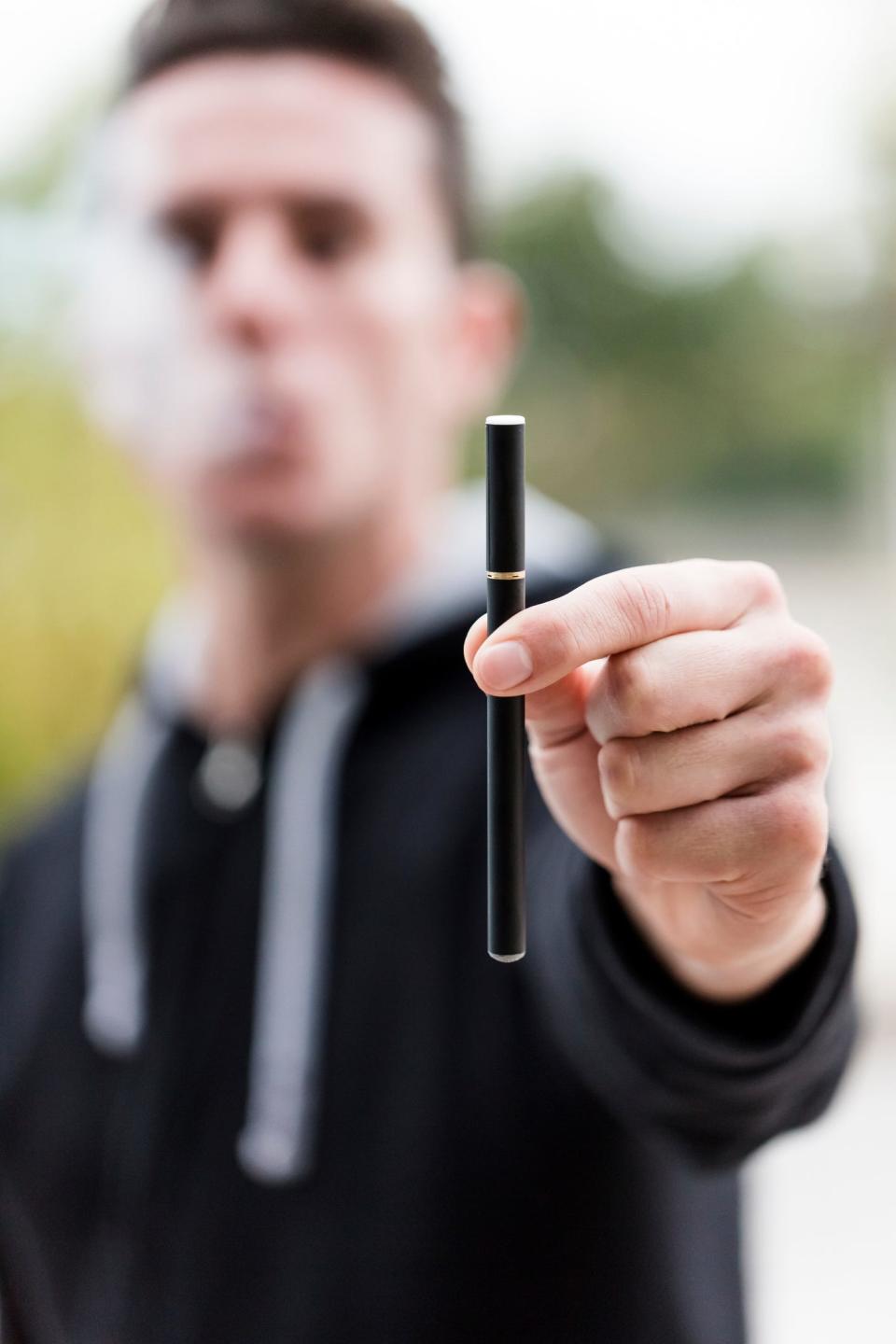Maine divided over banning flavored tobacco products: Public health vs. economics debated
YORK, Maine — Matthew Wellington was 13 when he was given cigarettes by his neighbor. He hated the taste, and today he is thankful they weren’t menthols that could have masked the harsh burnt tobacco flavor.
“If he smoked menthol cigarettes, it could be a different story,” Wellington told the York Selectboard Monday night. Wellington was making one of many stops around the area to share his advocacy for legislation going through the Maine State House that would ban all flavored tobacco products, from menthols to vapes.

The ban on flavored tobacco is being pushed in the form of two separate but similar bills. Wellington, who thanked Selectboard member Marilyn McLaughlin and Chair Todd Frederick for inviting him, said a ban would help curb tobacco use among youths who he said are the target of flavored products.
Wellington, the public health campaigns director for the Public Interest Research Group, said one in five Maine teens are currently using a tobacco product.
“That is well above the national average, so clearly we have a problem we need to address in our state,” Wellington said. “These are young kids, 14-, 15-, 16-year-olds, picking up an addictive habit using products that, if used as designed, will very likely lead to potential disease and even death in the future.”
New law: Maine governor signs bill making to-go alcohol drinks permanent
Flavored tobacco debate takes center stage
The two bills seeking a statewide ban were discussed during a public hearing Tuesday by the Joint Standing Committee on Health and Human Services. Testimony, both for and against, the bills lasted for six hours and went until after 7 p.m.
Much of the discussion from proponents of the bills centered on the attraction flavored tobacco products held for kids. Those who testified included current or recent school students frustrated with vaping in their schools, having seen their friends struggle with addiction and damaged lungs. Many parents spoke about how their children became addicted to tobacco through flavored vaping and then struggled for years with addiction.

“Flavored vapes are responsible for derailing my son’s life,” said South Portland store owner Leah Day before the committee. “He would tell you he was lured by the flavor.”
Many appeared in opposition to the bills, however, arguing a ban would impact local businesses that do their best to follow the law in keeping them out of the hands of underage people.
“We already have laws that do not allow anyone under the age of 21,” said Christine Peters, chief operating officer for Maine Smoke Shop. The store has 19 locations statewide.
Opponents of the bills also argued a ban would result in a thriving black market with traffickers buying flavored products in New Hampshire and bringing them over the border. They also said that flavored products like vapes can be purchased online from places overseas, making it harder to enforce those outlets than local retail stores.
“There are still a slew of online sites selling from China,” Peters said, calling those sites “the real problem.”
Also testifying were members of the Maine Vapers Association who said flavored e-cigarettes helped them transition from smoking cigarettes that are considered more harmful. They argued how statistics have shown recently that youth vaping overall has declined. A survey from the CDC and FDA last year showed 20% of middle and high schoolers reported actively using e-cigarettes in 2019. A year later, the number was 13.1%, then in 2021 it was 9%, according to the survey.
“Youth rates are declining,” said Owen Casas of the Maine Vaper’s Association.
Guy Bentley, director of consumer freedom at the Reason Foundation, argued the state could find a way to protect children while offering flavored vape users an appealing alternative to cigarettes.
“Youth vaping has fallen by almost 60% over the past three years,” Bentley said. “Maine can protect youth while also ensuring adult smokers have the option to switch to safer nicotine alternatives.”
More: Maine jury rules developers have right to finish $1B power line despite state vote
Bans on flavored tobacco grow across the nation
There are five states that have banned flavored tobacco so far in the United States, the first of which was Massachusetts in 2020. There are also numerous cities and towns that have implemented bans, including in Maine. Portland, South Portland, Brunswick, Bar Harbor and Bangor have all banned flavored tobacco in their stores.Experts have said the ban in Massachusetts resulted in declines in adult smoking rates, in sales of e-cigarettes and menthol cigarettes and overall cigarette sales. They have also said the economic impact of the ban was not as significant as the tobacco industry indicates.
Members of the retail industry argued Tuesday they saw the fallout from the ban differently, saying the economic impact was in fact apparent. Peter Brennan, executive director of the New England Convenience Store and Energy Marketers Association, said that the Massachusetts ban has “led to a host of negative outcomes on the economic, health and criminal fronts.”
Rob Chapman of the National Convenience Distributors testified Tuesday that Massachusetts had “disastrous” results for retailers, saying Bay State cigarette excise tax stamp sales were down 23.9% the year the ban took place. He said at the same time that the figure in border states rose. Rhode Island’s cigarette excise tax sales are up 18% while New Hampshire saw a 29.7% increase.
“Nearly all of Massachusetts’ losses were picked up by bordering states,” Chapman said.
'I have been attacked': Ex-teacher accuses York School District of anti-LGBTQ bias
What’s next
Both bills will now be heading to a workshop in a couple of weeks in which the joint standing committee will consider them separately. Committee members will vote on whether to send them to the House and Senate floor, according to the committee’s clerk.
Some lawmakers remain undecided on how they will vote if the bill comes to their chamber.
State Rep. Holly Sargent, D-York, said she understands the effect the products have on youth, noting she is a member of the committee on Education and Cultural Affairs. She said she was concerned while listening to Wellington speak before the Selectboard Monday on the dangers flavored tobacco hold for youth.
“I think it’s very, very serious, so I think we have to do something,” Sargent said. Still, she will weigh both sides as the potential for a vote looms over the coming weeks.
“I want people to be able to make their own decisions by in large, but there are some issues that don’t fall into that category,” Sargent said. “I know a lot of my colleagues believe this is one of them, so I’ll be looking at it very seriously.”
This article originally appeared on Portsmouth Herald: Maine divided over banning flavored tobacco products

